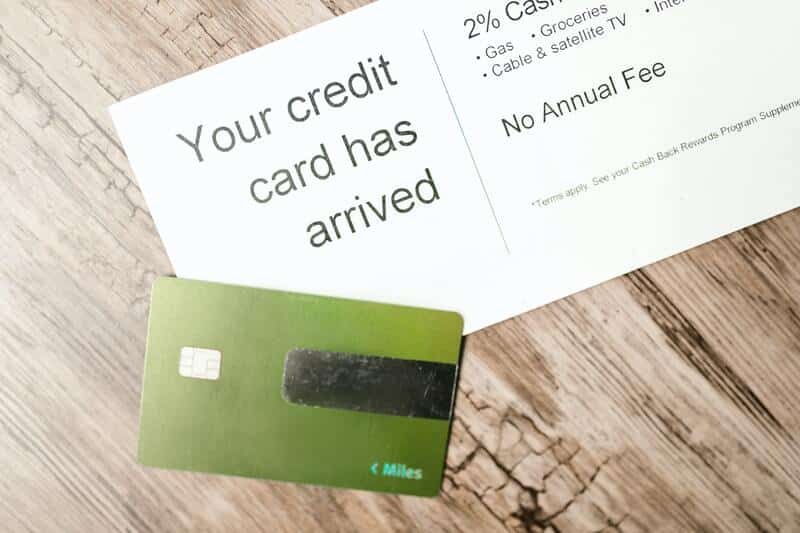Finding the best banks in Dubai for expats to get a personal loan is a crucial decision for anyone living in the UAE.
Personal loans can help expats cover unexpected expenses, pay for education or home renovation, or even start a business.
However, with so many options available, it can be challenging to navigate the market and find the right bank that suits your needs. This is where our blog comes in handy.
Our purpose is to provide expats in Dubai with a comprehensive guide to the best banks for personal loans.
Knowing which bank to choose can save you time, money, and avoid unnecessary hassle.
If you are looking to invest as an expat or high-net-worth individual, which is what I specialize in, you can email me (advice@adamfayed.com) or WhatsApp (+44-7393-450-837).
Table of Contents
What is a personal loan and how can expats in Dubai benefit from it?
A personal loan is an unsecured loan that individuals can borrow from banks or financial institutions for personal use.
Unlike other types of loans that are specific to certain purchases, personal loans can be used for a variety of purposes, such as debt consolidation, home renovation, or unexpected expenses.
Expats in Dubai can benefit from personal loans in several ways. First, personal loans can provide a source of funds to cover unexpected expenses, such as medical bills, car repairs, or other emergencies.
Second, personal loans can help expats manage their finances more effectively by consolidating their debts into a single monthly payment with a lower interest rate. This can help them save money on interest and fees in the long run.
Third, personal loans can help expats achieve their goals and aspirations, such as starting a business or pursuing higher education. With a personal loan, expats can have access to the funds they need to make their dreams a reality.
Finally, personal loans can help expats build their credit score and establish a credit history in the UAE, which can be useful for future borrowing needs.
It’s important to note that personal loans come with a cost, in the form of interest rates, fees, and charges.
Therefore, it’s essential for expats to evaluate their financial situation carefully and choose a loan that suits their needs and budget.

What are the best banks in Dubai for expats to get a personal loan?
There are many best banks in Dubai for expats. But if you are looking to find the best one to get a personal loan from, here are the top choices you can consider:
Emirates NBD
Emirates NBD offers personal loans for expats with competitive interest rates and flexible repayment periods of up to 48 months. They also offer quick and easy approval processes, with loan amounts up to AED 3 million.
Mashreq Bank
Mashreq Bank offers personal loans for expats with interest rates starting at 5.25% p.a. They also offer loan amounts up to AED 1 million and flexible repayment periods of up to 48 months.
Commercial Bank of Dubai
Commercial Bank of Dubai offers personal loans for expats with competitive interest rates and loan amounts up to AED 1 million. They also offer flexible repayment periods of up to 48 months and quick approval processes.
Abu Dhabi Commercial Bank
Abu Dhabi Commercial Bank offers personal loans for expats with interest rates starting at 3.99% p.a. They also offer loan amounts up to AED 3 million and flexible repayment periods of up to 48 months.
RAKBANK
RAKBANK offers personal loans for expats with interest rates starting at 5.99% p.a. They also offer loan amounts up to AED 1 million and flexible repayment periods of up to 48 months. RAKBANK also offers a pre-approval loan facility for eligible customers.
Standard Chartered Bank
Standard Chartered Bank offers personal loans for expats with interest rates starting at 3.49% p.a. They also offer loan amounts up to AED 1 million and flexible repayment periods of up to 48 months. Standard Chartered Bank also offers a pre-approved loan facility for eligible customers.
What are the eligibility criteria for expats to apply for a personal loan in Dubai?
The eligibility criteria for expats to apply for a personal loan in Dubai may vary depending on the bank or financial institution.
Expats should be at least 21 years old and not exceed 60 or 65 years of age by the end of the loan tenure.
They should also have a stable job and a minimum monthly income that meets the bank’s requirements. Generally, banks require expats to have a minimum monthly income of AED 5,000 or more.
Expats should also have a valid residence visa and residency proof, such as a tenancy contract or utility bill.
A good credit score, which reflects their creditworthiness and ability to repay the loan, is also important. Banks may check expats’ credit scores from credit bureaus like Al Etihad Credit Bureau (AECB).
Expats also need to provide a set of documents such as their passport, visa, Emirates ID, bank statements, salary certificates, and any other additional documents required by the bank.
It’s essential to note that meeting the eligibility criteria does not guarantee loan approval. Best banks in Dubai for expats may have additional requirements, and the approval process may depend on the applicant’s financial history, credit score, and other factors.
Therefore, it’s recommended to check the bank’s website or visit a branch to learn more about their personal loan requirements for expats.
What are the different types of personal loans offered by banks in Dubai for expats?
The best banks in Dubai for expats offer different types of personal loans to cater to the diverse needs of these target market. Here are some of the common types of personal loans offered by best banks in Dubai for expats:
Flat Rate Personal Loan
This is a traditional type of personal loan where the interest rate remains fixed throughout the loan tenure. The interest rate is calculated on the entire loan amount, and the monthly installment remains the same.
Reducing Rate Personal Loan
In this type of personal loan, the interest rate is calculated on the outstanding loan balance, reducing with each installment payment. This means that the interest cost decreases over time, and the borrower pays less interest than a flat rate loan.
Salary Transfer Personal Loan
This type of personal loan requires the borrower to transfer their salary to the bank as a condition for loan approval. The loan amount is usually based on the borrower’s salary and can be up to a certain limit.
Debt Consolidation Loan
This type of personal loan is designed to help expats consolidate their multiple debts into a single loan with a lower interest rate and monthly installment. This can help expats manage their debts more effectively and save money on interest charges.
Flexi Personal Loan
This type of personal loan offers the flexibility to borrow and repay the loan as per the borrower’s needs. The borrower can withdraw and repay the loan amount multiple times within the approved credit limit.
Islamic Personal Finance
This type of personal finance follows the principles of Islamic Sharia law, which prohibits interest charges. Instead, the best banks in Dubai for expats charges a profit rate or a markup on the loan amount, which is agreed upon by the borrower and the bank.
What are the factors that determine the interest rates for personal loans for expats in Dubai?
The interest rates for personal loans for expats in Dubai are determined by several factors. Here are some of the key factors that the best banks in Dubai for expats consider while determining interest rates for personal loans:
Credit Score
The credit score of the expat is an essential factor that banks consider while deciding the interest rate for a personal loan. A high credit score indicates the borrower’s creditworthiness and ability to repay the loan, which can result in a lower interest rate.
Income Level
The borrower’s income level is also a crucial factor in determining the interest rate. Expats with a higher income level may be offered lower interest rates as they are considered less risky borrowers.
Loan Amount and Tenure
The loan amount and tenure can also affect the interest rate offered by the best banks in Dubai for expats. Typically, higher loan amounts and longer tenures may result in higher interest rates.
Relationship with the Bank
The relationship of the expat with the bank can also play a role in determining the interest rate. Existing customers who maintain a good relationship with the bank may be offered lower interest rates.
Market Conditions
The prevailing market conditions, such as economic growth, inflation, and interest rates, can also influence the interest rates offered by the best banks in Dubai for expats.
How much can an expat in Dubai borrow through a personal loan, and what are the repayment periods?
The loan amount and repayment period for a personal loan for expats in Dubai may vary depending on the bank or financial institution.
Expats in Dubai can typically borrow up to AED 1 million or more, depending on their income level, credit history, and other factors.
Some of the best banks in Dubai for expats may also offer higher loan amounts of up to AED 3 million or more for eligible expats.
The repayment period for personal loans for expats in Dubai can vary from 12 months to 48 months or more, depending on the loan amount and the bank’s policies.
Some banks may also offer a longer repayment period of up to 60 months or more for eligible expats.
It’s important to note that the loan amount and repayment period may affect the interest rate, fees, and charges associated with the personal loan.
Therefore, it’s recommended to evaluate the loan amount and repayment period carefully and choose a loan that suits the borrower’s needs and budget.
What are the fees and charges associated with personal loans for expats in Dubai?
Personal loans for expats in Dubai come with various fees and charges, which can vary depending on the bank or financial institution. Here are some common fees and charges associated with personal loans for expats:
Processing Fee
This is a one-time fee charged by the best banks in Dubai for expats to process the loan application. The processing fee can range from 1% to 3% of the loan amount.
Early Settlement Fee
If the borrower wishes to repay the loan before the end of the loan tenure, the bank may charge an early settlement fee. This fee can range from 1% to 3% of the outstanding loan amount.
Late Payment Fee
If the borrower fails to make the monthly installment payment on time, the bank may charge a late payment fee. This fee can range from 1% to 3% of the overdue amount.
Insurance Fee
Some banks may require the borrower to purchase an insurance policy to cover the loan amount in case of death or disability. The insurance fee can vary depending on the loan amount and the insurance policy.
Prepayment Fee
Some of the best banks in Dubai for expats may charge a prepayment fee if the borrower makes a prepayment of a certain amount of the loan before the end of the loan tenure.
Administrative Fe
Some banks may charge an administrative fee to cover the cost of managing the loan account, such as issuing statements, managing repayments, etc.

How long does it take for a personal loan to be approved in Dubai, and what is the process?
The time taken to approve a personal loan in Dubai can vary depending on the bank or financial institution and the eligibility of the applicant.
The first step is to submit a personal loan application to the bank. The application can be submitted online or in person at the bank branch.
The application requires the applicant to provide personal and financial information, along with supporting documents.
Once the application is submitted, the best banks in Dubai for expats will verify the applicant’s information and documents. The bank may also check the applicant’s credit score and financial history.
If the applicant meets the eligibility criteria and the loan application is approved, the bank will provide a loan offer, which includes the loan amount, interest rate, and repayment period. The applicant needs to accept the loan offer to proceed.
After the loan offer is accepted, the bank will disburse the loan amount to the applicant’s bank account. The time taken for disbursement can vary depending on the bank’s policies and procedures.
Some banks may also offer pre-approved personal loans to eligible customers, which can be approved within a few minutes.
Can expats with low credit scores or no credit history apply for personal loans in Dubai?
Expats with low credit scores or no credit history may face challenges in getting personal loans in Dubai.
Banks and financial institutions in Dubai generally prefer to lend to individuals with a good credit history and credit score as it indicates their ability to repay the loan.
However, some of the best banks in Dubai for expats may offer personal loans to expats with low credit scores or no credit history, provided they meet other eligibility criteria such as a stable job, a high-income level, and a good debt-to-income ratio.
In such cases, the interest rates offered may be higher than the rates offered to individuals with good credit scores, and the loan amount may also be limited. Some banks may also require the applicant to provide additional security or a guarantor to mitigate the risk of default.
It’s important for expats with low credit scores or no credit history to research different banks and their loan policies before applying for a personal loan.
It’s also recommended to work on improving their credit score by paying bills and debts on time and maintaining a good credit history. By doing so, they may improve their chances of getting approved for a personal loan in the future with better terms and conditions.

What are the advantages of borrowing from local banks vs. international banks for expats in Dubai?
When it comes to borrowing personal loans in Dubai, expats have the option to choose from both local and international banks.
While both options have their advantages and disadvantages, there are some key benefits to borrowing from local banks that expats should consider.
One advantage of borrowing from local banks is that they have a better understanding of the local market and regulatory environment. This means that they may be more familiar with the needs and challenges faced by expats in Dubai and can offer tailored solutions that meet those needs.
Additionally, local banks may have a wider range of loan products and services that cater specifically to the needs of expats.
Another advantage of borrowing from local banks is that they may offer better interest rates and fees than international banks. This is because local banks have a stronger presence and a larger customer base in Dubai, which allows them to offer more competitive rates and fees.
Additionally, local banks may be more willing to negotiate and customize loan terms based on the borrower’s financial situation and credit history.
Borrowing from local banks also offers the convenience of having easy access to banking services and customer support.
Local banks have a network of branches and ATMs throughout Dubai, which makes it easier for expats to manage their finances and access banking services.
Moreover, local banks may have customer service teams that are well-versed in multiple languages, which can be particularly helpful for expats who may not be fluent in Arabic or English.
Lastly, borrowing from local banks may provide the added benefit of establishing a relationship with a trusted financial institution in Dubai.
This relationship can help expats build their credit history and access other financial services and products, such as credit cards and mortgages.
Conclusion
In conclusion, choosing the best banks in Dubai for expats to get a personal loan can make a significant difference in terms of interest rates, fees, and overall customer experience.
As an expat, it’s essential to research and compare different banks and their loan products and services to find the one that best suits your needs and budget.
Whether you choose a local or international bank, it’s important to understand the loan terms and conditions, eligibility criteria, and fees and charges associated with the loan.
Pained by financial indecision? Want to invest with Adam?

Adam is an internationally recognised author on financial matters, with over 760.2 million answer views on Quora.com, a widely sold book on Amazon, and a contributor on Forbes.



